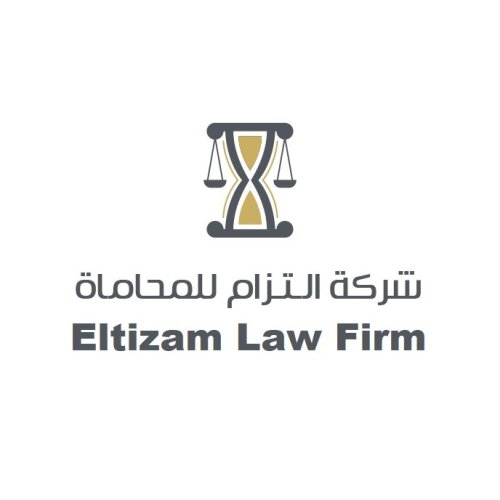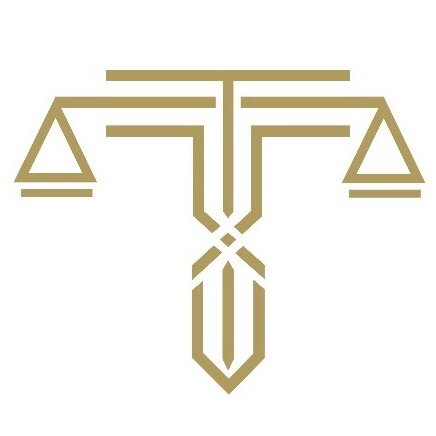Best Energy Regulatory Law Lawyers in Khobar
Share your needs with us, get contacted by law firms.
Free. Takes 2 min.
List of the best lawyers in Khobar, Saudi Arabia
About Energy Regulatory Law in Khobar, Saudi Arabia
Energy Regulatory Law is a crucial area of legal practice in Khobar, Saudi Arabia, an energetic hub located in the Eastern Province. This field governs the generation, distribution, supply, and commercialization of energy resources like oil, gas, and electricity. Given Saudi Arabia's pivotal role in global energy markets and its Vision 2030 strategy to diversify energy sources, the legal framework around energy activities is continuously evolving. Laws and regulations manage everything from licensing and permits to environmental compliance and tariff setting, aiming to ensure that energy resources are developed, distributed, and utilized efficiently and sustainably.
Why You May Need a Lawyer
Energy Regulatory Law can be complex and navigating the requirements in Khobar can be challenging for both individuals and organizations. Here are some common situations where legal assistance becomes essential:
- Starting or expanding an energy business, such as oil, gas, electricity, or renewable energy projects
- Applying for licenses and permits required for energy operations
- Negotiating or drafting contracts related to energy sales, distribution, or infrastructure
- Ensuring compliance with health, safety, and environmental regulations
- Resolving disputes regarding energy tariffs, supply contracts, or regulatory decisions
- Dealing with land use, zoning, or environmental impact issues for energy projects
- Understanding the regulatory impact of Saudi Arabia’s energy diversification initiatives
- Representing clients in dealings with government authorities or regulatory bodies
Local Laws Overview
Khobar, situated at the heart of Saudi Arabia’s energy sector, is governed by national and local energy laws. Key laws and regulations in this sector include:
- The Electricity Law: Sets out rules for electricity generation, transmission, and distribution. It ensures fair competition, licensing, and consumer protection.
- Saudi Arabian Oil Law: Governs the exploration and extraction of hydrocarbons, including licensing, royalties, and environmental safeguards.
- Renewable Energy Program Regulations: Provide guidance for developing solar and wind projects as Saudi Arabia seeks alternatives to traditional energy.
- Environmental Regulations: The Presidency of Meteorology and Environment issues regulations pertaining to environmental impact assessments and pollution control.
- Energy Efficiency Standards: Enforced by the Saudi Standards, Metrology and Quality Organization, and the Saudi Energy Efficiency Center.
- The Role of the Electricity and Cogeneration Regulatory Authority (ECRA): ECRA is the principal regulator for electricity and water sectors, setting and monitoring compliance standards.
- Vision 2030 Initiatives: Ongoing reforms aim to privatize some energy assets and promote investment in renewable and sustainable energy projects, impacting regulatory expectations and opportunities.
Frequently Asked Questions
What is Energy Regulatory Law in Khobar?
Energy Regulatory Law in Khobar refers to the set of rules, regulations, and policies that govern every aspect of energy production, distribution, pricing, and environmental compliance within the city, in line with broader national standards.
Who regulates the energy sector in Khobar?
The main regulatory body for energy in Saudi Arabia, including Khobar, is the Electricity and Cogeneration Regulatory Authority (ECRA). Other significant authorities include the Ministry of Energy and the Saudi Standards, Metrology and Quality Organization.
Do I need a permit to start an energy-related business in Khobar?
Yes, most energy-related businesses require specific licenses and permits, including those for electricity generation, fuel supply, or renewable energy projects. These are usually issued by ECRA or the Ministry of Energy.
What are the penalties for violating energy regulations?
Penalties can range from monetary fines to suspension or revocation of business licenses, depending on the severity and nature of the infraction. Severe breaches, such as environmental violations, may also involve criminal prosecution.
How are energy tariffs regulated?
Tariffs for electricity, water, and some fuel products are set and regulated by ECRA, in accordance with government policy. These tariffs are periodically reviewed and may be adjusted to reflect changes in policy or market conditions.
Can foreign companies operate in the energy sector in Khobar?
Foreign investment is permitted in certain segments of the energy market, particularly under Saudi Arabia’s Vision 2030 initiatives. However, there are regulatory requirements and restrictions that must be met, and obtaining legal advice is recommended.
What is the process for dispute resolution in the energy sector?
Disputes may be resolved through negotiation, mediation, or litigation. Regulatory bodies like ECRA often have mechanisms for handling complaints and disputes between industry participants or between companies and consumers.
Are there specific environmental laws affecting energy projects?
Yes, environmental regulations require impact assessments, pollution controls, and adherence to sustainability standards. Energy projects must obtain approvals from environmental agencies, including the Presidency of Meteorology and Environment.
How does the law support renewable energy development?
Special regulations and incentives support renewable energy projects. These include streamlined licensing, preferential tariffs, and investment facilitation measures to encourage solar, wind, and other renewables.
Where can I get official information about energy laws and regulations?
Official information is available from regulatory bodies such as ECRA, the Ministry of Energy, and the Saudi Standards, Metrology and Quality Organization. Consulting the official websites or reaching out directly to these organizations is recommended.
Additional Resources
If you need more information or assistance, the following resources can be highly valuable:
- Electricity and Cogeneration Regulatory Authority (ECRA): Main regulator for electricity and co-generation projects in Saudi Arabia.
- Ministry of Energy: Responsible for all aspects of energy policy, licensing, and regulation.
- Saudi Standards, Metrology and Quality Organization: Sets standards for efficiency and safety in energy operations.
- Presidency of Meteorology and Environment: Authority overseeing environmental aspects of energy projects.
- Chamber of Commerce and Industry (Eastern Province): Can provide business support and guidance for investors in Khobar.
- Local and international law firms specializing in Energy Law: Experienced legal advice is essential for navigating regulations and compliance in Khobar.
Next Steps
If you need legal assistance in Energy Regulatory Law in Khobar, here’s how to proceed:
- Define your specific legal need, such as licensing, compliance, contract negotiation, or dispute resolution.
- Gather documentation related to your energy project or business, including any correspondence with regulatory bodies.
- Contact a licensed law firm or legal consultant with expertise in energy law within Saudi Arabia, ideally one familiar with the Khobar area.
- Prepare a list of questions and objectives to discuss with your lawyer in your initial meeting.
- Stay informed about regulatory changes by monitoring bulletins from ECRA, the Ministry of Energy, and other relevant authorities.
Navigating Energy Regulatory Law in Khobar is complex but manageable with the right legal guidance. Early consultation with an experienced lawyer can help you ensure compliance, avoid penalties, and seize new opportunities in Saudi Arabia’s dynamic energy sector.
Lawzana helps you find the best lawyers and law firms in Khobar through a curated and pre-screened list of qualified legal professionals. Our platform offers rankings and detailed profiles of attorneys and law firms, allowing you to compare based on practice areas, including Energy Regulatory Law, experience, and client feedback.
Each profile includes a description of the firm's areas of practice, client reviews, team members and partners, year of establishment, spoken languages, office locations, contact information, social media presence, and any published articles or resources. Most firms on our platform speak English and are experienced in both local and international legal matters.
Get a quote from top-rated law firms in Khobar, Saudi Arabia — quickly, securely, and without unnecessary hassle.
Disclaimer:
The information provided on this page is for general informational purposes only and does not constitute legal advice. While we strive to ensure the accuracy and relevance of the content, legal information may change over time, and interpretations of the law can vary. You should always consult with a qualified legal professional for advice specific to your situation.
We disclaim all liability for actions taken or not taken based on the content of this page. If you believe any information is incorrect or outdated, please contact us, and we will review and update it where appropriate.














